
SPE E-Challenge Machine Learning Version
Although the issue is just beginning to take place in the country, we have seen the need to bring the first O&G Machine Learning Challenge in Ecuador for students and young professionals, where all participants will have the opportunity to test and improve their knowledge in programming, statistics, and machine learning.
In this edition of the E-Challenge Machine Learning Version, participants will be able to use real production data and the target will be to build the most accurate model for predictive maintenance of this asset.
The programming language will be Python, and you can use any open-source framework for machine learning.
Prizes for winners will be held by SCHLUMBERGER, the official sponsor of this initiative, for the top 3 places.
| May 14th | Challenge Launching |
| June 22nd - June 24th | Hands-on Workshops |
| June 30th | Registration deadline |
| August 1st - August 31th | Competition |
| August 1st | Data Releasing |
| August 10th (Required) | First Prediction Submission |
| August 10-30 (Optional) | Prediction Submissions |
| August 31th, 23H59 (Required) | Final Submission Deadline |
| September 5th | Closing Ceremony |
The challenge will have workshops and previous presentations of high-level speakers who have joined this program and will share their insights about state of the art in Machine Learning and Climate Change.
Join us, learn, improve, and test your skills in Data Science.
Rules
1. Registration for the contest is fully open for national and international participants.
2. Teams will have a maximum of 3 people.
3. Every contestant must hold an active SPE membership.
4. Teams can not represent any company.
5. All winning teams must agree to release their code under public license on a Git-hub repository owned by the SPE Ecuador Section.
6. All participants must refer any code taken from other authors If they include any external job in their models.
7. Plagiarism will be immediate cause for declassification.
8. All submissions after the deadline will be declassified.
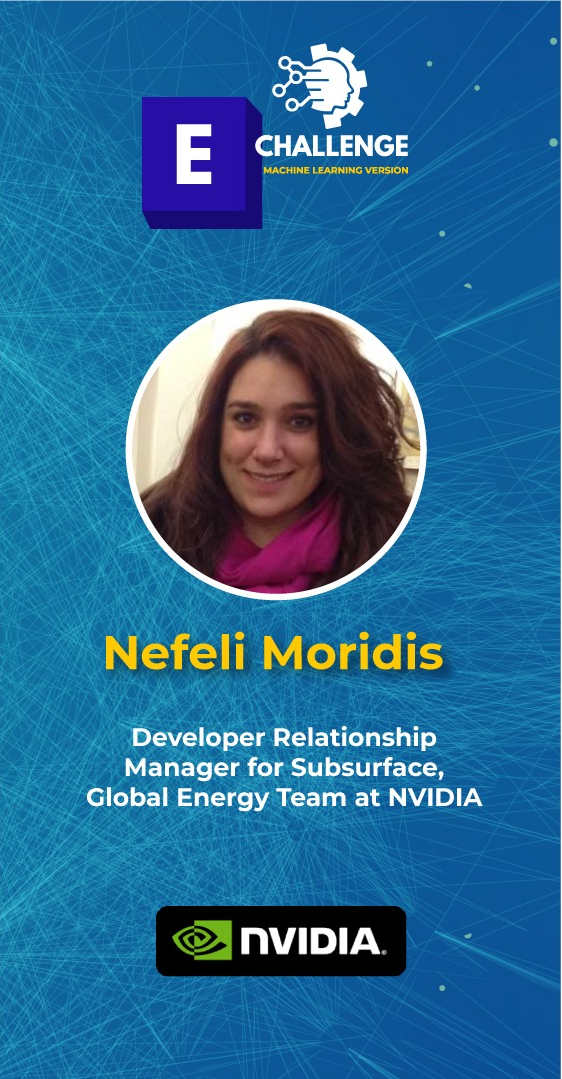
Nefeli Moridis
Developer Relationship Manager for Subsurface, Global Energy Team at NVIDIA
Thursday, July 15th, 16H00
From O&G to Tech: Transferable Skills of a Petroleum Engineer
Abstract:
Digital processing and innovation have been occuring for a long time in the oil and gas industry. Some practices are more popular now because of the emergence of machine learning (ML) and artificial intelligence (AI). The petroleum industry has always generated large amounts of data. A single exploration may generate multiple petabytes of raw data and processing this data is very resource intensive and time consuming. To analyze this data and understand the subsurface to optimize production, it is important to build reservoir simulation models but these models require huge amounts of compute power. In the oil and gas industry, we face the challenge of technology innovations and adapting quicky to be competitive. In this talk, we will discuss my experience of working in the oil and gas industry and shifting to the energy team of a tech company, along with the transferable skills reservoir engineers have to make this transition.
Berna Hascakir
Director of the Heavy Oil, Oil Shales, Oil Sands, & Carbonate Analysis and Recovery Methods (HOCAM) Research Team at Texas A&M University.
Researcher and author of more than 150 articles.
SPE Distinguished Member.
Friday, May 14th 14H00
Can zero emissions be a realistic objective?
Future of Petroleum Engineering
Abstract:
Climate change is one of the most concerning topics for the world economy and operation regulations in every industry nowadays, as set in the Paris Agreement most of the world power countries agreed to keep the rise in global average temperature to well below 2 °C; and to pursue efforts to limit the increase to 1.5 to reduce the risks and impacts of climate change.
Many countries, companies and different actors have joined the ‘Race to Zero’ initiative promoted by the UN that proposes to achieve the so-called Net-Zero Carbon Emissions by 2050.
But how reachable and real is the goal of zero emissions in its concept? In this talk, we will discuss the actual contribution of petroleum as a source of carbon and its effect on gas emissions; also, how carbon emissions affect the climate and finally, we will discuss the imminent need of petroleum products and the role of the O&G industry within the context of clean technologies in the coming years.
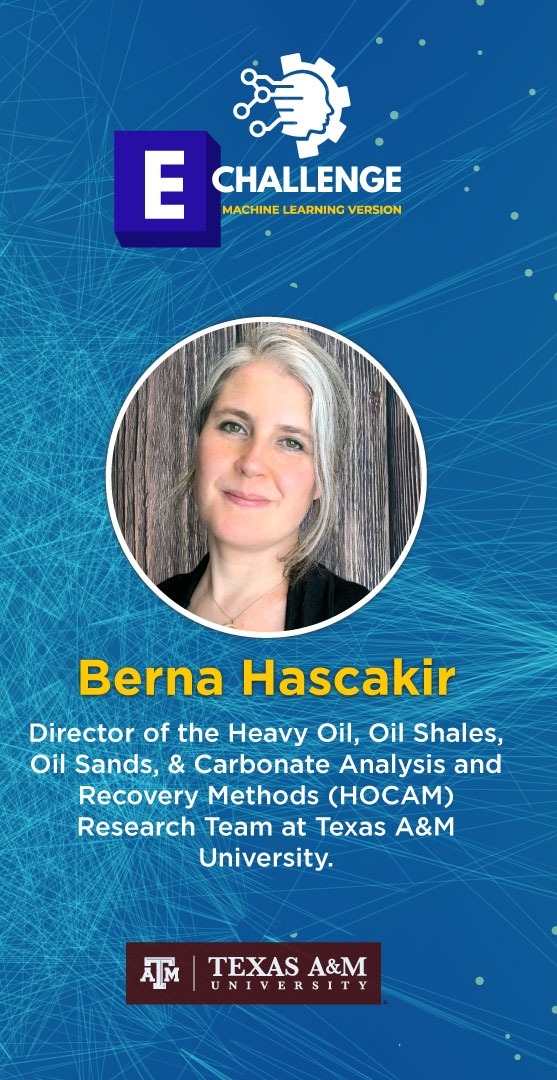
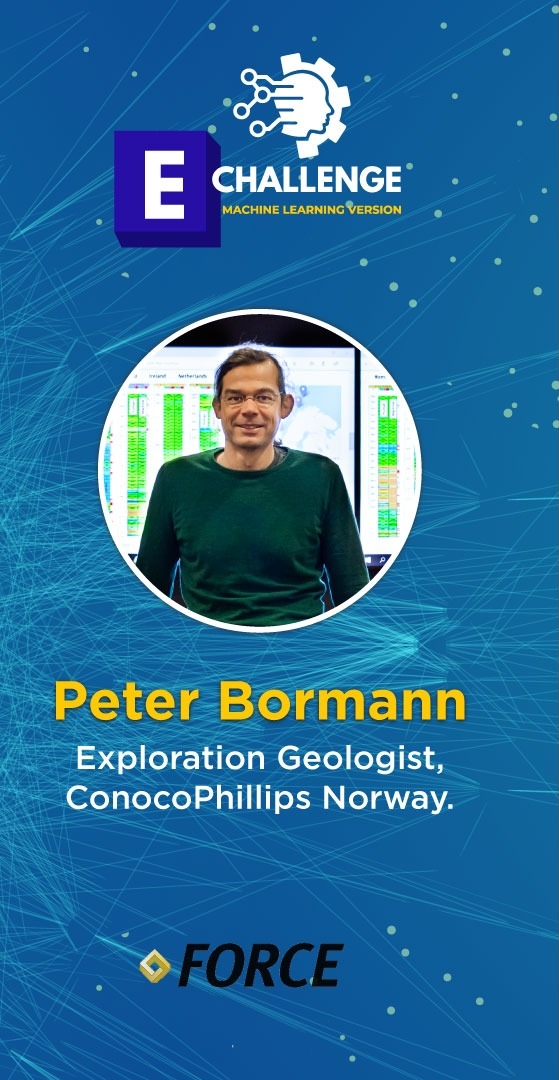
Peter Bormann
Exploration Geologist, ConocoPhillips Norway.
Prospect assessment and improving geoscience workflows by use of machine learning.
Wednesday, May 12th 15H00
Winning with the Open Subsurface Datasets
Results from the FORCE 2020 Machine Learning competition on Wells Logs and Seismic Data
Abstract:
The current revolution in data science is fueled by open data sets, a democratization of tools and global real time access of knowledge and innovation. For this reason, globally open competitions with subsurface data offer an intriguing way of testing the current state of the art in the field of machine learning.
In early 2020 five people from 5 different companies got together to organize the first truly open machine learning competition on well data and seismic under the auspices of FORCE: a cooperating forum of Norwegian Oil & Gas companies.
Over 400 truly globally distributed teams and close to 2000 individuals participated in predicting lithology from well logs and identifying faults on seismic.
We will present the results of the competition, compare the machine learning outcomes against expert geological interpretations and disclose the winning teams’ algorithms.
Jørgen Kvalsvik
Software Engineer at Equinor
Thursday, May 13th 14H00
Open source software in the O&G industry
Abstract:
Open source is everywhere today, and have impacted progress and business models across many industries. Almost all businesses at some level rely on projects like linux, git, python, and R, just to name a few. While the oil and gas industry traditionally have been very conservative with sharing, the open source world is quickly catching up and changing the industry.
In this talk we will discuss the shift to open source software in the O&G industry and how it contributes to drive adoption and deliver more business value than traditional proprietary projects. We will talk about open source projects that are being used by academics, professionals, and enthusiasts, who leverage open source every day to getting better insight into their data, improve their workflows, and get better results faster and cheaper by means of powerful open source tools.

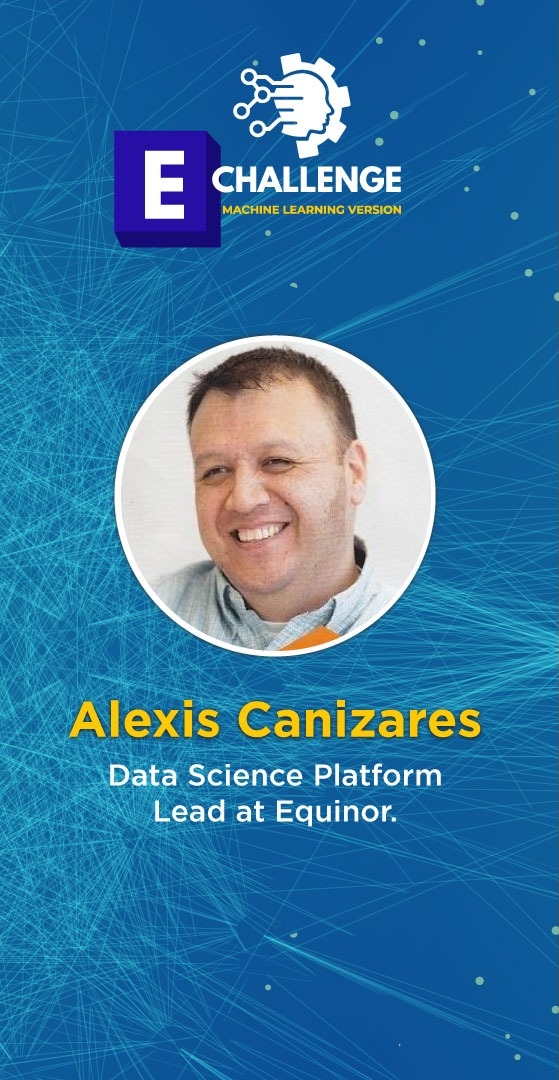
Alexis Canizares
Data Science Platform Lead at Equinor
Leading the implementation of machine learning at scale with Azure, Kubernetes, Terraform, Kubeflow, CI/CD Argo, and Tensorflow.
Wednesday, May 12, 14H00
Anomaly Detection at Scale with Machine Learning
Abstract:
Anomaly detection with machine learning is one of the most powerful methods that industries apply today to detect operation failures, avoid disasters, and prevent risks. It uses a bespoke combination of different tools such as clustering, time series decomposition, Bayesian distribution, and correlation analysis. All these methods help us to identify mathematically significant irregularities, and we need the right analysis interpretation to take a decision.
In this talk, we will discuss about how automation in anomaly detection can be used in O&G industry to optimize performance in operations, we will discuss in detail about different techniques from state of the art and see how they provide sophisticated real-time anomaly detection using time series data.
Kimberley Montague
Recruitment Manager and University Relations at Schlumberger
Thursday, May 13th 15H00
Data Analytics & Schlumberger
Abstract:
Schlumberger drives technological advancements in one of the world’s most dynamic industries, continually pushing the limits of what is possible in a work environment that brings out the best in each team member. In this talk, we will discuss about the opportunities we have to empower our business through continuous research, learning, training, and development of skills.
We will also discuss about the opportunities we have for the following areas to join our team. Cloud Technology, Automation Engineering, Data Science and Analytics, Machine Learning and Artificial Intelligence, Cybersecurity, 3D Visualization, DevOps, Software Design and Architecture, High-Performance Computing, User Experience and Visual Design, and Industrial Internet of Things.
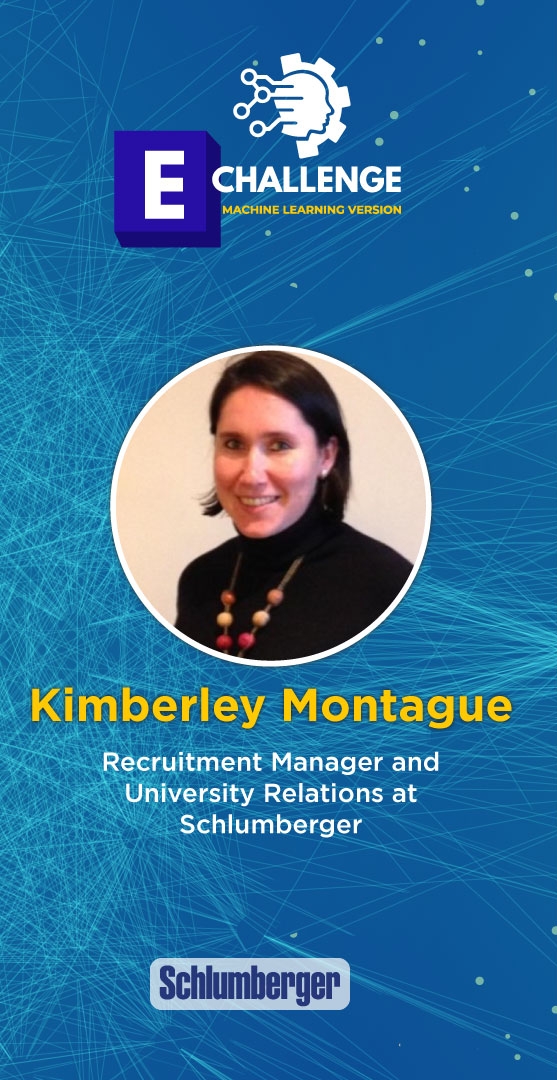
Content of this project is published in the next repository under the Creative Commons License shown below:
https://gitlab.com/spe.ec/e-challenge-prediction-models-for-historical-data-of-esp-patterns
Data, code and solutions must be used only for academic purposes and derivated products must acknowledge the authorship of the SPE Ecuador Section as creator of the original material.
E-challenge - Prediction Models for Historical Data of ESP Patterns by SPE Ecuador Section is licensed under CC BY-NC-SA 4.0

Historical Data of ESP Patterns by SPE Ecuador Section is licensed under a Creative Commons Attribution-NonCommercial-ShareAlike 4.0 International License.




